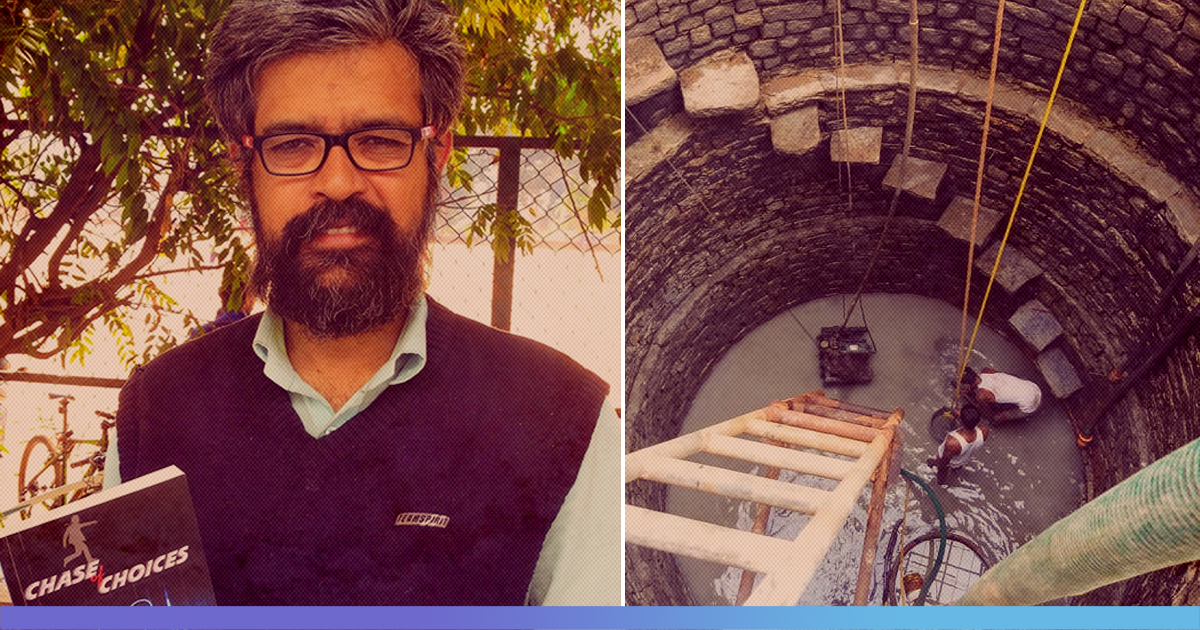The recent news of two frogs being married in Udupi, Karnataka to appease the rain gods might have amused a lot of us. As much as it tells about the superstition, it also points to the desperation of the villagers with respect to water scarcity in the country. Here is the story of a man who is beating the odds at this hour of crisis.
Dr Vishwanath Srikantaiah, a water activist and urban planner, in collaboration with several communities has carried out successful campaigns at the household level and some with large community participation to conserve water in Bengaluru.
He has designed several rooftop water harvesting structures in the state of Karnataka for households and industries. He is an active member of the Rainwater Club, which has been spreading information about rainwater harvesting in Bengaluru since 1995.
Water Conservation Projects
The Logical Indian spoke to Dr Vishwanath, about ways of conserving water at the household level. “For every sq metre of roof area, one has to create 20 litres of storage of recharge, and for every sq metre of the paved area around the building, one has to create 10 litres of storage of recharge. The recharge well should be a minimum of 10 feet,” he said.
“We have been able to encourage quite a lot of people to follow various water conservation methods. We also run an ecologically-run architectural practice, where many of the components are incorporated as part of the design,” he adds.
At the policy level, several efforts were made by the Bangalore Water Supply and Sewerage Board (BWSSB) and a group of engineers. However, Dr Vishwanath, along with two other active members, have been following these practices for 24 years now and have been able to motivate many to do the same.
Dr Vishwanath has also successfully developed a filter, called ‘VARUN’, for purifying rainwater.
‘A Million Wells In Bengaluru’
To ensure water security for the city, close to 750 families dig, clean and deepen wells. However, their livelihoods have been destroyed because of the era of borewells.
The traditional well diggers have now come up with a campaign of ‘digging a million wells’ in Bengaluru. Dr Vishwanath launched the project along with the Biome Environmental Trust and voluntary citizen network Friends of Lakes.
“These recharge wells will use rooftop rainwater and send it into the aquifers, helping groundwater conditions to improve, and the traditional well diggers getting a better livelihood,” Dr Vishwanath said.
These well-diggers have made sure that about 10,000 open wells are functional and being used by people. They have developed about a 100,000 recharge wells too at the city level. The target that they expect to achieve is of a million.
“Linking policies, livelihoods and water security is the way forward,” he added.
Lake Rejuvenation
Dr Vishwanath, along with his active supporters, also work with the ‘Lake Rejuvenation Community’ and are promoting the idea of integrated urban water management.
“Under the programme of integrated urban water management, treated waste-water is sent to the lakes, ensuring the lake is full. This also makes the groundwater available for drinking. This is a process of transforming waste-water into drinking water by an ecological process,” Dr Vishwanath said.
Bengaluru, which has been under the grip of a water crisis, requires some urgent efforts towards water conservation. Right from changes at the policy level and increased community participation, the solution lies at several levels.
These efforts are not just carried out in the city of Bengaluru, but the mission is to save the entire country from the acute problem of water shortage.
“With the current crippling water crisis, rejuvenating water bodies, growing water-efficient crops, and recycling waste-water are possible ways to avoid the recurrence of such an acute water crisis in future,” Dr Vishwanath said.
The Logical Indian stands in support of the efforts taken by Dr Vishwanath, several communities and the traditional well-diggers who have been able to enlighten the citizens about ‘water literacy’ and bring about a possible change at the grass-root level.
It is often said that the third world war would be fought over water. While earlier it was said to bring water scarcity to people’s attention, this adage no longer seems an exaggeration. This article is a part of series The Logical Indian is focussing on to bring to you reports of water scarcity which is only getting worse.
Also Read: 1,900 Villages In Karnataka Facing Drought; Water Scarcity Is Slowly Crippling The State












